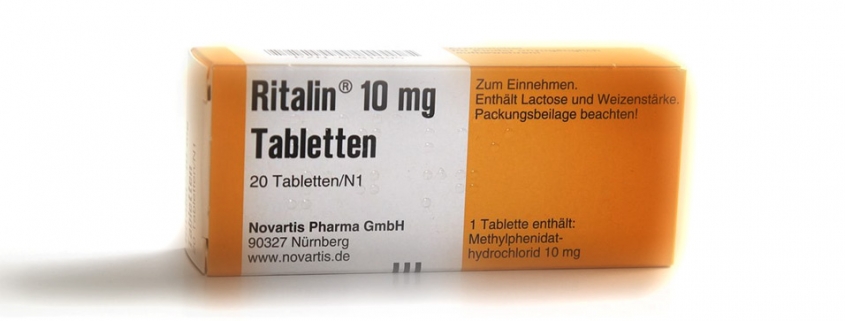Destroying Young Minds
Nowadays, more and more parents are doing the wrong things to make their child rearing easier. Many years ago the solutions for minor psychological problems were seeing a psychotherapist or psychiatrist to figure out the problem and working through the solution. Psychotropic drugs were prescribed for only the severely psychologically disturbed. Now it is increasingly more common to give a pill to cure all ills instead of looking into deeper problems to find the root. Then try everything to fix it and only resort to medication as a last ditch effort! Unfortunately, in American life no one has time to deal with problems properly. Parents spend more time away from their children, which affects their behavior and doctors have become more concerned with making money than properly treating their patients. This brings me to my subject; doctors are prescribing psychotropic drugs at an ever-increasing rate. Although it may be necessary for some kids, unfortunately there is abuse. Like most family problems, change starts in the home and parents need to check their own backyard before running their active little son to the doctor to medicate him. This is a serious problem that needs to be addressed and fixed.
Psychotropic drug use is growing at an alarming rate. A study of how widely spread psychotropic drug use in children was conducted. It studied children ages 2-4 years old and found that in 1991 100,000 children were on psychotropic drugs, in 1995 the numbers rose by 50% to 150,000 and that year 60% of the children were age 4, 30% were age 3, and 10% were age 2. This was only a study of Preschoolers, imagine the numbers of older children. The study covered prescription medications such as stimulants, anti-depressants, anti-psychotics and clonidine (a high blood pressure medication prescribed to older adults). The study found that the use of clonidine skyrocketed in all three groups. These were not only used for attention disorders. Doctors are prescribing them for a number of disorders beyond attention deficit syndrome such as bed-wetting, pain relief and anxiety associated with medical, pre-surgery and dental procedures. As you can see some of these are just ridiculous in 2-4 year olds. This study did not get into the reasons for the increase, but Julie Magno Zito, the lead author and assistant professor of pharmacy and medicine at the University of Maryland suggested it could possibly be the pressure on parents with children in daycare to have their children conform. Dr. Joseph T. Coyle of Harvard Medical School of Psychiatry Department, wrote in an editorial that accompanied the study, that Medicaid does not have the funding to reimburse parents for their children’s behavior evaluations. So it is common to just prescribe a pill that will give the parent instant gratification. It used to be common to be evaluated by a psychotherapist then work on the problem through various psycho-therapeutical methods then finally as a last resort use drugs in conjunction with therapy. Dr. Coyle states that in the past “there were multi-disciplined clinics that incorporated pediatric, psychiatric, behavioral and family dynamic expertise” doctors to address these same problems. What happened? Seems these were not cost effective so they were disregarded, but like most things one affects the other. Tried and true therapies have been replaced by quick, cheap and easy.
One of the scariest findings beyond the numbers is the unknown affect. Pharmaceutical companies have no idea what the true affects of long-term use are. As with many “quick fixes”, pharmaceutical companies find out 10, 20, and 30+ years down the road that “oops sorry we did not know that would happen”. In psychology, it is learned that neural pruning happens in young children and their experiences in those ages determine which neurons get pruned. How does the use of psychotropic drugs affect this process? This needs to be addressed. Do we really want mentally dull children who just obey well? I for one do not.
Many parents I know have been vehemently against this practice. One mother related that she has first hand experience with the details of this article. Her “sister-in-law” has a son who is very active, the “sister-in-law” felt over active. So, she took him to the doctor and the doctor prescribed Ritalin. Voila! He was fixed. Sounds like success, right? Well this “sister-in-law” rarely watched her children; in fact, her oldest son (9) was in charge of the younger child (that is now on Ritalin). He frequently took care of him, bathed him, and fed him and everything a parent should do. So really what is the problem here? Why should this neglected little boy have his mind destroyed by drugs simply because his mom chooses to not deal with him? This is a sad story that I have heard from many of my friends. It’s either neglect from the parent or the unwillingness to be consistent with some kind of discipline. Many times the child only misbehaves because the limits set are not defined. The consequences for their actions are not defined as well. I have personally taken care of “uncontrollable” children and once I laid down the law and was seen enforcing it, I had very few problems with the child, in fact, I even observed this same “uncontrollable” child interact and have fun with my children! Sometimes, time and consistency does really work. Unfortunately many parents get caught up in the rat race and cannot or will not do what is necessary to “fix” the problems. This then becomes a “doctor help” situation, and nowadays, if you go to enough doctors you will get the desired result, which usually means drugs.
What motivates these parents to set aside their parenting instincts and go for the doctor? Well I think the motivations are many. It seems to me that I hear parent’s talk about their kids having mental problems like it is a badge of honor. They say how tough it is, but do not do anything beyond pumping their kids full of drugs. I think they just want to live the soap opera. Drama rules their lives. Yet another is even sicker. In the above story about the “sister-in-law”, the woman even boasted about how much money she was going make on Social Security. Parents can get benefits from SSI since ADD is a learning disability. That is open for abuse combined with the willingness to diagnose ADD and other disorders by doctors. Think about the 150, 000-200,000 preschool children that are being diagnosed and all of the sudden we see that a huge amount of money is possibly being used up. Remember this is only 2-4 year olds. Whatever motivates these parents, it is obvious that the use of drugs is not the answer.
It is easy to see this is a real problem. The solution lies in educating parents, so they can make informed choices. It is also up to the parents to follow through and not take the most convenient road to satisfy their own needs. If that means taking lower paying jobs or none at all and getting rid of frivolous pleasures, or expensive cars than so be it. Essentially stop trying to keep up with the Jones’s. Our children need their parents to be there for them. Psychotropic drugs are not the answer. If there is a real problem, not an imagined one to give your life meaning, then pursue psychologists and psychiatrists to see if non-drug treatments will help. Then try to accept the fact that your child will not conform to societal standards of behavior and live with it. Do we really want all children to be seen and not heard? I want my children to be leaders to the next generation not obedient slaves to the next generation. Parents need to take a hard look at how they interact with their children, not drug them into submission. Pay attention to the most important lives, their children’s. No one said child rearing was going to be easy, but the fruits of your labor will shine bright when you see them grow into good people and perhaps good leaders.
**Editor’s note**
Although not directly, connected to “home schooling”, often what happens is these children get “labeled” by teachers that can no longer handle these ill behaved, or just rambunctious, children. Instead of confronting parents on the behavioral issue, they instead stick a mentally ill tag on the child; this in turn raises funding for “Special Needs” programs and more money per student. One of the benefits of home education is that one can tailor an education to the child, and it is better to deal with issues such as the behavioral problems. Schools are just not equipped or manned to give these children the attention they need, not to mention that perhaps a child is acting out because they are bored to tears or are being completely ignored. Please find other ways to solve problems with children than to medicate them. Sometimes, time, patience and a loving and attentive parent is all that is needed!








Leave a Reply
Want to join the discussion?Feel free to contribute!